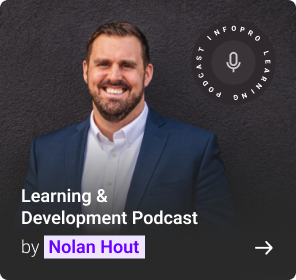Organizations are evolving how they approach employee training in a rapidly changing, technology-driven world. Personalized and technology-enabled learning experiences rapidly surpass the traditional model of classroom-based training sessions. According to LinkedIn’s 2025 Workplace Learning Report, 83% of organizations will sustain or grow their investment in career-targeted learning this year; additionally, as per a report by Spherical Insights & Consulting, the Global eLearning market is estimated to reach USD 1515.97 billion by 2033. Essential to this transformation is the emergence of corporate learning services, tailored solutions that address the specific learning needs of modern organizations.
The Changing Landscape of Employee Training
The 21st century workplace looks entirely different from what it did just a few decades ago. Technology disruption, digital transformation, automation, artificial intelligence (AI), and remote working have reshaped job roles and the required skill sets. Data from a 2023 World Economic Forum report indicates that a staggering 44% of workers’ skills will be disrupted in the next five years, ushered in by technology. That instant pace of change necessitates a new way of training employees—quick, ongoing, and relevant to what the organization seeks to achieve and individuals’ career goals.
In the past, employee training was often done in reaction to pressing needs, to upskill to fill an immediate gap or meet a compliance demand. Today, however, organizations view training as a proactive, strategic investment in human capital. The rapidly changing work landscape has made corporate learning services an important enabler of this transformation, with many organizations deploying tailored solutions driven by cutting-edge technologies, data analytics, and new pedagogical approaches to get the most out of their learning experiences.
The Rise of Corporate Learning Services
Corporate learning services include learning management systems (LMS), eLearning platforms, virtual classrooms, on-the-job training tools, and consultancy services. These services are typically provided by external companies or an internal learning and development (L&D) group that understands the intricacies of instructional design, technology integration and workforce analytics.
Corporate learning services have many benefits, such as being scalable and customizable. From tiny startups to some of the newest multinational corporations, these services can be customized to fit the industry’s challenges, employee demographics, and company objectives. For example, a corporate learning services solution could help enterprises upskill their workforce in emerging technologies such as cloud computing and artificial intelligence (AI) for organizations targeting businesses like a software company. Meanwhile, a retail chain could specialize in tailored customer service training and inventory management.
In addition, corporate learning services are slowly incorporating classes on technology like AI, virtual reality (VR), and augmented reality (AR) to create an interactive learning environment. Such novelties drive more participation from employees, who can simulate actual situations in a safe setting, which improves the rate of upskilling and the retention of these new skills.
Trends Influencing the Future of Employee Training
Some major trends will define the future of employee training and expand the importance of corporate learning services:
Customized Learning Experiences
Generic training programs are on their way out. Now, employees seek learning options tailored to their personal and professional goals and interests. With the help of artificial intelligence and machine learning, corporate learning service providers analyze employee performance data, discover areas that need upskilling, and model learning paths uniquely suited to each employee. The training becomes targeted by leveraging data and analytics, leading to higher employee engagement and productivity.
Fast-paced work environments often leave little time for employees to participate in long training sessions. Microlearning—delivering appropriately sized, focused content—has emerged as a solution. According to the Future Market Insights report, the microlearning market in 2024 was estimated at US$ 1,550.0 million, and its projected Compound Annual Growth Rate (CAGR) from 2024 to 2034 is expected to be 13.5%, with an industry value exceeding USD 5,474.9 million by 2034. Corporate learning service providers create modular courses that employees can access on demand through mobile apps, videos, or interactive quizzes. It enables employees to learn skills when they need to use them in practice to be the most efficient.
Virtual Reality and Augmented Reality
With virtual and augmented reality slowly entering the corporate sector, corporate training receives a complete makeover with real-time learning experiences. VR is used so employees can practice risky things without consequences to the business or customers, like operating heavy machinery or dealing with an annoyed customer. Corporate learning service providers increasingly use these technologies to create rich training simulations, especially in health care, manufacturing and aviation.
Soft Skills Training
While technical skills will always be important, the future of work calls for a conscious effort on soft skills—adaptability and emotional intelligence will be crucial, as will collaboration. Corporate learning services are already responding with offerings that blend instruction in hard skills with leadership development, workshops on persuasive communications, and team-building exercises. Such an all-around approach helps prepare employees to excel in diverse, cross-breadth teams.
Continuous Learning and Upskilling
Continuous learning is no longer a choice; it’s a must. As job roles change rapidly, every employee needs to upskill and reskill to remain up to speed. Corporate learning services are paving the way through subscription-based learning platforms, certification programs, and career development resources. Companies encouraging continuous learning are better positioned to retain their talent and continue competing in their respective sectors.
Data-Driven Decision Making
Analytics is transforming how organizations measure and evaluate the impact of training initiatives. Corporate learning service providers offer instruments to monitor progress, evaluate outcomes, and calculate ROI. This data can enable businesses to fine-tune their training methodology, target their resources more efficiently, and demonstrate how learning initiatives have specific, quantifiable effects on business performance.
Conclusion
Corporate learning services are the future of employee training. These services offer a bridge between the demands of the currently available workforce and tomorrow’s opportunities, merging technology, personalization in learning, and innovative L&D strategies to create a more skilled, engaged, and resilient workforce. Organizations that embrace corporate learning services will not only survive the march of time—they will thrive, becoming excellent examples of employee development.





